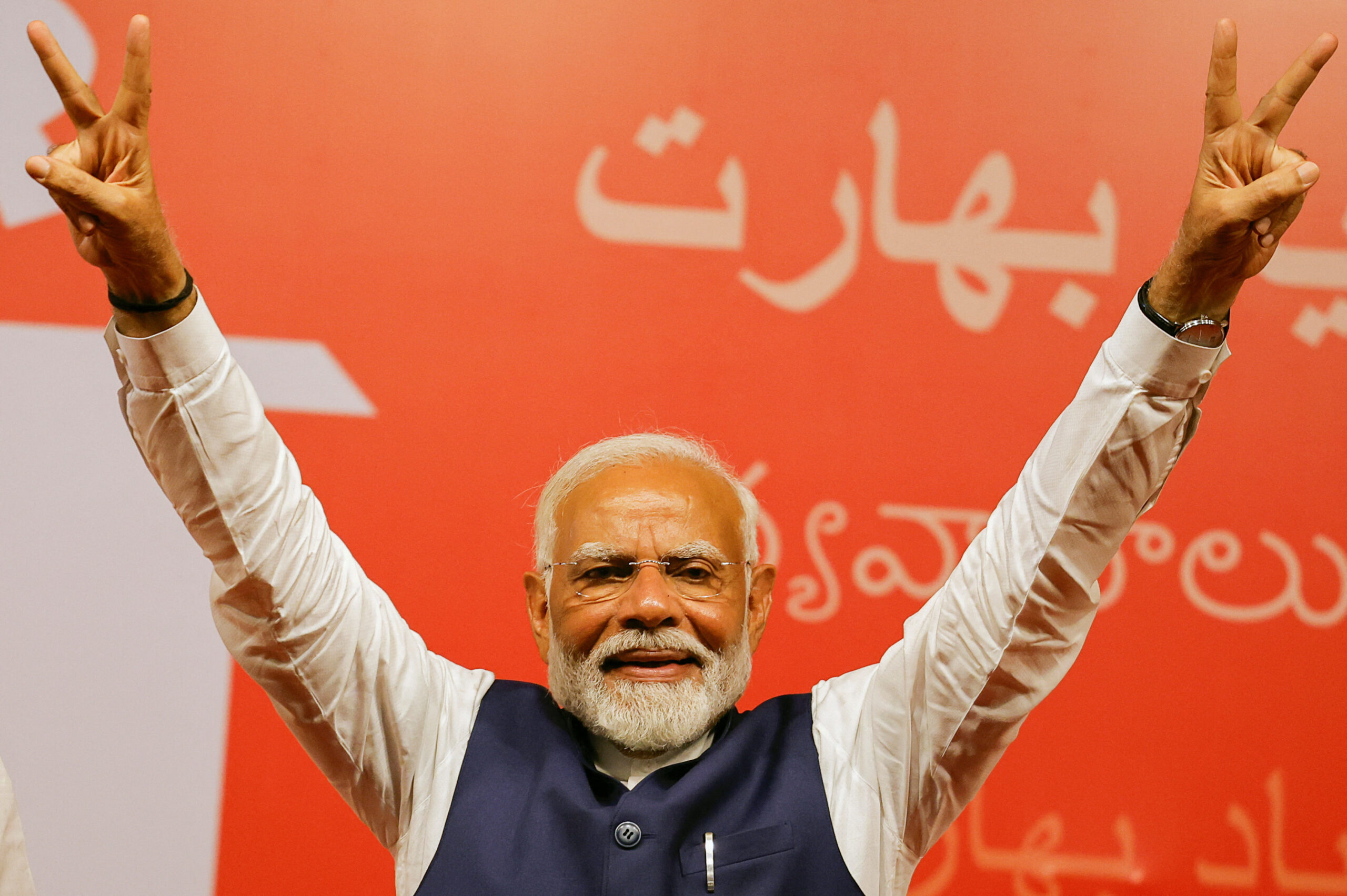
The coalition led by Indian PM Modi makes a claim to create a new government
The National Democratic Alliance, led by Indian Prime Minister Narendra Modi, officially filed its application to form a government on Friday. Modi also made a pledge that his new alliance, consisting of fifteen parties, will work toward unanimity and succeed.
TV broadcasters and a source in the President’s office reported that NDA officials met with President Droupadi Murmu and presented the alliance’s claim—led by Modi’s Bharatiya Janata Party—to govern the most populous country in the globe for the ensuing five years.
Later on Friday, Murmu was supposed to formally ask Modi to form a government. They also stated that Sunday night would be the swearing-in ceremony, which would make Modi the prime minister for an unprecedented third consecutive term.
The BJP, which won majorities hands-down in 2014 and 2019, is now dependent on the backing of regional parties to form the government for the first time in ten years. This development first alarmed markets and raised concerns among experts on fiscal restraint and policy predictability.
Modi remarked, “It is my good fortune that all of you from NDA have chosen me to lead,” following the alliance’s first meeting following the June 4 vote count and results announcement, when NDA MPs approved his nomination for leader.
In the central hall of the historic parliament building, parliamentarians and senior leaders beat tables and cheered, with some standing and yelling “Modi, Modi!” “No alliance has ever been as successful as the NDA,” he declared.
“We have secured the majority, but in order to govern the nation, unity is essential. We intend to pursue unanimity,” he declared, indicating a potential shift in approach that a coalition administration may impose on a leader accustomed to exercising firm control.
Modi stated that the “middle class is the driving force of the country” and that the new administration would prioritize increasing middle class savings and enhancing their quality of life.
NDA CEOS AGREE TO REMAIN IN POSITION
Important NDA figures, whose backing has fluctuated in the past due to their many alliance changes, commended Modi and showed faith in his ability to lead.
“I have no doubt that he will finish whatever is left. “We are committed to supporting him throughout his journey,” declared Nitish Kumar, the chief minister of Bihar, an eastern state whose Janata Dal (United) party has 12 lawmakers, making it the third largest in the NDA.
According to Indian media, the Telugu Desam Party, which has 16 members and is the second-largest, as well as Kumar’s party are vying for the position of lower house speaker. Meanwhile, the BJP is anticipated to hold onto its four important ministries: foreign affairs, defense, home affairs, and finance.
The Janata Dal (United) further demands that the next government reexamine a 2022 military recruitment scheme that enlists youths at non-officer levels for a four-year term, with only 25% of the recruit class being kept for longer.
In the past, the army, navy, and air force recruited men independently, and the lowest levels may serve up to 17 years in the military.
Because the shorter term was perceived as harming career prospects, it worried prospective recruits and instigated protests in several regions of the nation.
According to a survey conducted after the election, people reduced their support for Modi because of a lack of jobs, which was one of the main themes in the election along with growing costs and declining earnings.
The coalition talks are reminiscent of a time before 2014, when Modi’s BJP won an absolute majority and hegemony.
All Categories
Recent Posts
Tags
+13162306000
zoneyetu@yahoo.com



